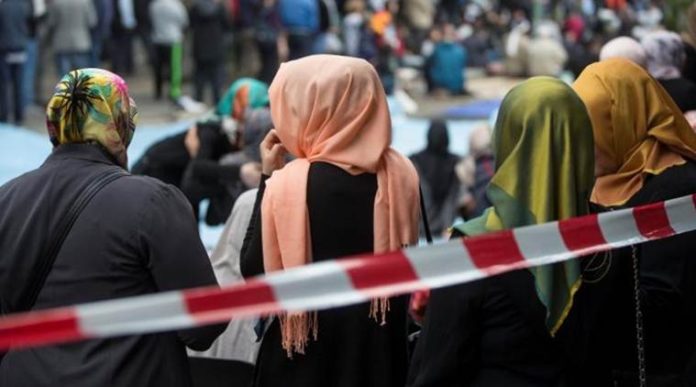Web Report
Dubai – The European Court of Justice ruled on Tuesday that employers can prohibit the Muslim headscarf in the workplace.
The decision sets an important precedent for the continent amid a fraught political climate.
As strong anti-immigrant sentiment spreads into the political mainstream and right-wing parties soar in popularity ahead of several key elections this year, the ruling is bound to fan the flames of long-simmering culture wars in Europe, especially in France.
The court addressed complaints from two Muslim women — one from France and one from Belgium — who alleged that their employers had discriminated against them for wearing the Muslim headscarf, or hijab, to the office.
The judges concluded otherwise: “An internal rule . . . which prohibits the visible wearing of any political, philosophical or religious sign does not constitute direct discrimination.”
Courts in France and Belgium will be left to settle the disputes in question.
In France, which is still reeling from terrorist attacks in the past two years perpetrated mostly by Islamic State militants or sympathizers with French and European passports, the far-right National Front party is on the rise.
The plaintiff in that case was Asma Bougnaoui, a Muslim woman who worked as an engineer at Micropole, a French IT firm. She had worn the headscarf when she was hired in 2008, but a client subsequently complained to her supervisors, insisting that there be “no veil next time.” Bougnaoui refused to take it off and was fired in June 2009.
Because there was no official policy banning the headscarf at Micropole, “the willingness of an employer to take account of the wishes of a customer no longer to have the services of that employer provided by a worker wearing an Islamic headscarf cannot be considered a genuine and determining occupational requirement,” the court said.
But the Belgian case presented a different scenario. In that case, Samira Achbita, a Muslim woman, was hired in 2003 as a receptionist by G4S, a British multinational security company. Unlike her French counterpart, Achbita had not worn the hijab at the time of her hiring by the firm, which has a clear “neutrality” policy.
Only in 2006 did she request that she be permitted to wear the headscarf. Because of the company’s policy prohibiting “political, philosophical or religious signs” in the workplace, Achbita was dismissed.
In strongly secular Europe — home to a growing Muslim minority that is especially sizable in France and Belgium — the cases highlighted two often contradictory liberties: the freedom of religion and the freedom of enterprise.








































